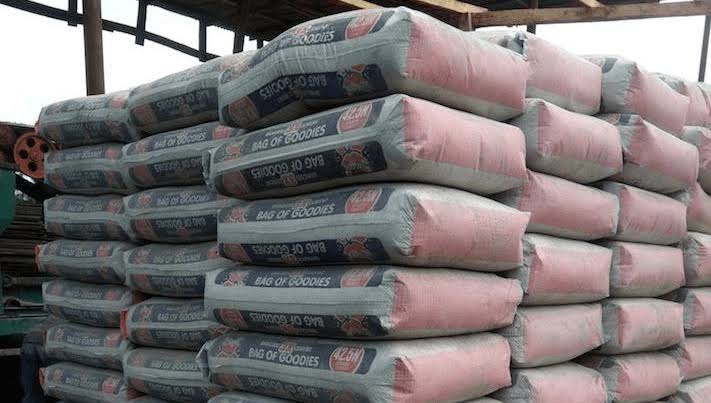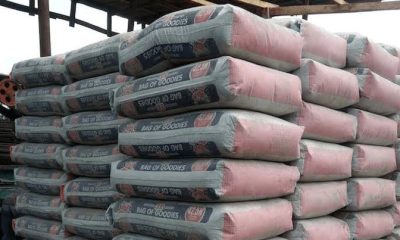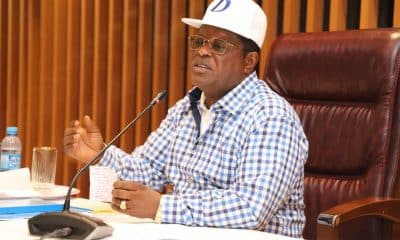Nigeria News
Housing Minister To Meet Cement Manufacturers Over Rising Price

In a proactive move to address the escalating cost of cement and other building materials, Ahmed Dangiwa, Nigeria’s Minister of Housing and Urban Development, has convened a strategic meeting with manufacturers within the industry.
This initiative, as outlined in a statement by his special adviser on media, Mark Chiese, on Thursday, aims to delve into the challenges facing the sector, with a focus on devising strategies to curb the rising prices and facilitate the provision of affordable housing across the country.
The minister expressed concern over the soaring costs of building materials, which have seen a dramatic increase despite Nigeria’s rich deposits of raw materials necessary for production.
A recent survey along the airport road indicated that the price for a 50kg bag of cement has surged to ₦9,000, marking a 38.8 percent increase from its previous rate of ₦5,500 just a week earlier.
Particularly troubling to Dangiwa is the sharp rise in cement prices, a situation he finds paradoxical given that local producers source the majority of their raw materials domestically.
This observation raises questions about the factors contributing to the disproportionate price hikes and underscores the need for collaborative efforts to find lasting solutions.
The meeting’s agenda also extended to discussions on the progress of partnerships between the Federal Mortgage Bank of Nigeria (FMBN), the Nigeria Labour Congress (NLC), the Trade Union Congress (TUC), and the Nigeria Employers Consultative Association.
These talks highlighted the National Affordable Housing Delivery Programme for Nigerian Workers, an initiative Dangiwa championed during his tenure as Managing Director of the FMBN.
By engaging directly with cement and building material manufacturers, the Ministry of Housing and Urban Development seeks to forge a path towards more affordable housing in Nigeria, mitigating the impact of high construction costs on housing accessibility for Nigerian workers and the general populace.
Dangiwa said, “It is disheartening to see how much Nigerians have to pay for essential building commodities like cement, with the prices rising almost on a daily basis. I don’t understand the reason for this increase, and it is not acceptable.
“I am going to be meeting with these manufacturers soon so that they can explain to Nigerians their reasons for such incessant hikes. I know that the cement producers source their raw materials in Nigeria; limestone, clay, silica sand, gypsum, iron ore, and the rest. These minerals abound in Nigeria and these manufacturers get them here, so there is no justification to try and blame it all on the rise of the dollar.”
Dangiwa further assured the delegation of the commitment of the administration to providing decent and affordable shelter and liveable communities to low- and medium-income earners, as well as the vulnerable in society.
He said the government will create a conducive environment for the private sector to thrive, including through ensuring building materials are affordable and accessible.
Recall that the ministry in January inaugurated the Building Materials Reform Task Team as part of efforts to develop the building materials industry through the creation of Building Materials Manufacturing Hubs in each of the six geopolitical zones of the country.
The Minister said while the hubs are yet to come on stream, there is a need to continue to interface with players in the industry such as building materials manufacturers in a bid to promote affordability.
Speaking on the partnership between the FMBN and organised labour, Dangiwa emphasised the need for the FMBN to reform and innovate its operations, calling on the NLC, TUC, and NECA to see the Bank and the National Housing Fund Scheme as their own that they must encourage and support the institution to do better towards delivering decent shelter to their members.
He said, “The truth is that despite FMBN’s inadequacies, which we are working to address, there is no other home ownership platform that can provide housing to the segment of Nigerians whom you represent at the terms and conditions that the FMBN provides.
“From the single-digit interest rate on loans ranging from 6 – 7 per cent versus the commercial rates of 18-24 per cent in commercial housing loans, to long tenors of 30-years versus 5-to-10-year commercial tenors, zero to maximum 10 per cent equity versus 30 per cent equity for commercial loans, FMBN is an institution that requires the support of all stakeholders so that it works. There is absolutely no alternative.”








